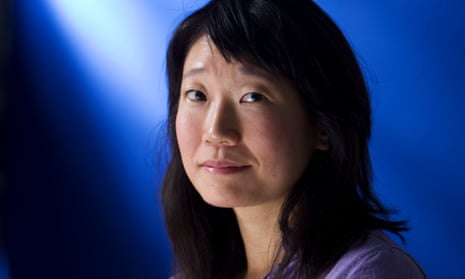The main concert hall of the Shanghai Conservatory of Music, in what was once the city’s French concession, is called He Luting Concert Hall. Today’s visitors to the spacious, western-style building, opened in 2003, could be forgiven for missing the significance of the name. He Luting was a composer who was also director of the conservatory from 1949. As Mao Zedong’s Cultural Revolution gathered force, He Luting came under attack for his writings on Debussy. In 1968, after two years of violence and humiliation, he was dragged before television cameras by Red Guards to be threatened and physically abused.
By this time, there had been a wave of suicides at the conservatory, as students turned on teachers and on each other. He Luting, however, refused to submit. Two weeks later, dragged back for a rerun, he shouted to his persecutors, live on television, “Shame on you for lying.”
He Luting’s defiance was a moment of resistance in the savage history that features prominently in Canadian novelist Madeleine Thien’s powerful third novel, along with the events two decades later surrounding the Tiananmen Square protests. History matters in China. For more than 60 years, the historical narrative has been manipulated or suppressed in the service of the shifting needs of the regime’s politics. Writing the wrong sort of history – one that deviates from the party line – can still get you into trouble.
Thien takes this history and weaves it into a vivid, magisterial novel that reaches back to China’s civil war and up to the present day. At its heart are the interlocking fates of a set of characters who live for and by music, until their world is destroyed by the events the revolution unleashes.
Her story begins in Vancouver, where the narrator, known by both her Chinese name Li-ling and her English name Marie, lives with her mother. Her father, she tells us, disappeared some years earlier, and in 1989, when Marie was 10, he killed himself in Hong Kong at the age of 39. That same year, a teenage relative appeared from China: Ai Ming, a young woman forced to flee following the brutal suppression of the student occupation of Tiananmen Square. Gradually, tracking back and forth across more than seven decades of history, Marie assembles the story of her father and his profound but troubled relationship with members of Ai Ming’s family.
The story is uncovered with difficulty – Marie barely speaks or reads Chinese, and the events and characters are buried beneath layers of forgetting. It is pieced together from the fragments of a set of notebooks brought to Canada from China.
The novel’s characters have copied and recopied into these notebooks a story entitled “Historical Records”, the origins of which remain obscure. The notebooks serve as both a narrative device and a metaphor for a history that can neither be remembered nor forgotten. The title of the manuscript is an allusion to China’s most celebrated work of history, Sima Qian’s Historical Records, completed in 91BCE but kept hidden for fear of the wrath of an emperor who had had its author castrated. The telling of history in China was always a dangerous occupation.
As Ai Ming and Marie grow close, Marie discovers that her father, Jiang Kai, had been the only one of his family to survive the starvation that resulted from Mao’s Great Leap Forward in the late 1950s and early 60s; that he was a talented concert pianist; and that he was friends with Ai Ming’s father, Sparrow, a gifted composer and his teacher at the Shanghai Conservatory of Music.
Marie learns, too, about the earlier generations of the family, including Ai Ming’s great aunt and grandmother – Swirl and Big Mother – who, as teenage sisters in the 1940s, made a living as itinerant teahouse singers. When Swirl and her husband were sent to labour camps in the 50s, Big Mother brought up their daughter, Zhuli, who grows into a dedicated violinist.
The lives of these earlier generations revolve around the Shanghai Conservatory, until the Cultural Revolution shatters everything. The music they love becomes cause for persecution, but continues to run through their heads as they try to hold on to meaning and to love, despite the chaos, grief, betrayal and violence. The fragile dreams of Thien’s characters run in counterpoint to the disordered cruelty of Maoist politics, with Glenn Gould’s two recordings of Bach’s Goldberg Variations running through the novel like a soundtrack of suffering and redemption. This is a moving and extraordinary evocation of the 20th-century tragedy of China, and deserves to cement Thien’s reputation as an important and compelling writer.

Comments (…)
Sign in or create your Guardian account to join the discussion